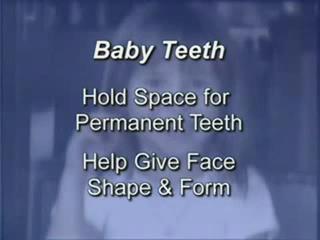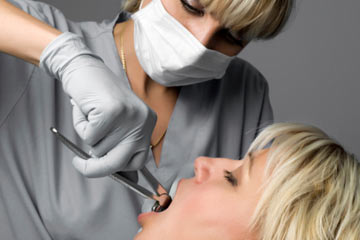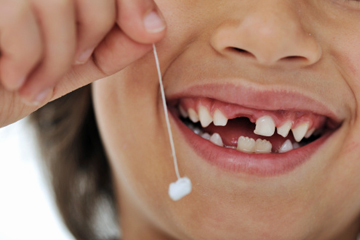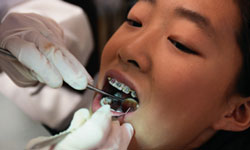
Adults often seem resigned to the fact that there’s not much they can do to increase the health and durability of their teeth once they leave adolescence. We seem to think that strong teeth can only be developed when we’re children.
There’s good news: With a few simple lifestyle adaptations, adults most certainly can improve the strength of their chompers. This is because tooth decay is all about mouth chemistry — and that chemistry can change at any time in your life based on what you eat and drink.
Decay begins when bacteria, such as the very common streptococcus mutans, secrete sticky molecules known as glucan to anchor themselves to your teeth and then coat themselves in a film called plaque. When the bacteria that live in a colony of plaque consume sugar and starch molecules, they convert them to acid which can dissolve the outer coating of your teeth, called enamel, as well as the layer beneath it known as dentin. This process is known as demineralization because the bacteria leach calcium and phosphate from your teeth.
To keep your teeth strong, the goal is to encourage the opposite of this process — logically called remineralization.
As your dentist has no doubt told you all of your life, it’s critical to brush twice a day and floss at least once a day to remove plaque from your teeth — especially before that film turns into a harder (and harder to remove) substance called tartar. But that’s not all you can do to keep your adult teeth strong.
Contents
- Get Enough Fluoride
- Foods that Strengthen Teeth
- Vitamins for Strong Teeth and Gums
Get Enough Fluoride
It turns out that your dentist was right about something else: Fluoride matters. In fact, according to the American Dental Hygienists’ Association, water fluoridation has reduced tooth decay in the United States by 50 to 60 percent since World War II.
Fluoride, a natural element, works by helping make the crystals that form tooth enamel more durable. In short, it remineralizes teeth and helps them become more resistant to acid and decay. It can also help stop bacteria from producing so much acid in the first place.
Fluoride can be incorporated into the teeth in two ways. Topical fluoride is applied directly to the teeth through such mediums as fluoride toothpaste, dental treatments and mouth rinses. Systemic fluoride is directly ingested into the body through water or fluoride supplements, and bathes your teeth through its presence in your saliva. Fluoride can also be ingested systemically through what we eat. Foods with particularly high fluoride concentrations include fish and tea — especially green tea, which has twice the concentration of fluoride than its black counterpart.
One of the issues facing adults is that fluoride consumption has been declining with the increase of bottled water consumption. Although some bottled waters do contain the element, many don’t — especially those that are treated with a reverse osmosis process that can take out as much as 95 percent of the fluoride from water. So, if your choice of bottled water doesn’t contain fluoride, you’ll want to be extra certain you’re getting it through your toothpaste or other means.
Foods that Strengthen Teeth
Green tea isn’t only good for your teeth because of its fluoride content. It is also rich in compounds known as catechin polyphenols, which are effective at killing bacteria in the mouth responsible for gum disease and tooth decay. In fact, researchers at Tohoku University Graduate School of Medicine in Japan discovered that men who drank at least one cup of green tea a day were 19 percent less likely to lose teeth than those who didn’t take their (green) tea time [source: Marshall].
Two other colorful beverages that are rich in polyphenols — and therefore effective for battling decay-causing bacteria (although they can stain the teeth) — are cranberry juice and red wine. Having a little cheese with that red wine after a meal is a good idea, because it neutralizes acid and produces beneficial saliva. In one study, those who regularly ate cheese had 71 percent less damage to the enamel than non-cheese eaters [source: Smith].
Another reason cheese is beneficial is that it is a good source of calcium, which also helps build strong teeth. Other good sources of calcium include canned salmon or sardines (their soft bones are a great calcium source), dark leafy green vegetables, blackstrap molasses, low-fat dairy, almonds, Brazil nuts and sunflower seeds.
More keen on topping off a meal off with something sweet and luscious instead of stinky and salty? Well, there’s good news for you, too. In one study, an extract made from cocoa has been shown to be more effective at protecting teeth than fluoride [source: Tufts University]. Researchers believe the effect is due to the fact that cocoa contains theobromine, which can help harden tooth enamel. But remember, as with all health benefits derived from chocolate, the darker the better.
Other candy-style treats that help keep your teeth strong include pure licorice (as in the Chinese herb, not Twizzlers), which helps kill streptococcus mutans, and chewing gum, which produces saliva with a higher pH that is, in turn, effective in neutralizing decay-causing acids. Chewing gum made with xylitol is even more effective because streptococcus mutans consume the xylitol like sugar, but cannot metabolize it. The buildup of xylitol eventually becomes toxic to the bacteria.
Finally, teeth can benefit from foods that are rich in phosphorus — like meat, fish and eggs — and magnesium, which is found in spinach and bananas.
Surprising Foods That Can Weaken Enamel
Everyone knows sugar and soda damage teeth, but did you know that pasta and whole grains can, too? That’s because the starch they contain is converted to bacteria-feeding sugar when exposed to saliva. The same holds true for dried fruits. Seltzer is often a dieter’s drink of choice, but it’s not your dentist’s favorite beverage — it contains carbonic acid, which can erode enamel. Yogurt, while high in tooth-strengthening calcium, may also harm teeth, because it can be highly acidic.
Vitamins for Strong Teeth and Gums
“
©iStockphoto.com/julichka
As we saw on the last page, calcium is important for strong teeth, which makes sense as teeth are, in effect, bone. But to absorb calcium, the body needs vitamin D, which it uses to produce a hormone known as calcitriol. If you are under the age of 70 you should strive to get 600 International Units (IU) of calcium a day — and should increase that to 800 IU daily if you are older [source: NIH Osteoporosis and Related Bone Diseases National Resource Center]. Vitamin D can be found in egg yolks, liver, fatty fish like salmon, tuna and mackerel, and fortified milk. It can also be obtained from sun exposure and from supplements.
Vitamin A is another bone-booster that can help to keep teeth strong. It can be found in both animal-based food sources such as eggs, liver and milk or in plant sources — most commonly as beta-carotene — such as vegetables like carrots, sweet potatoes, spinach and cantaloupe.
Super-strong teeth aren’t really of very much use if they’re anchored in unhealthy gums, which is why you want to make sure you are also getting enough vitamin C. This popular vitamin helps keep connective tissues — like gums — healthy. Good sources of vitamin C include all citrus fruits, strawberries, broccoli, peppers and tomatoes, as well as many other fruits and vegetables.





